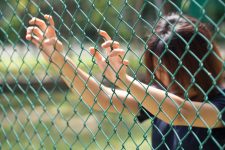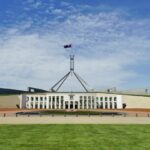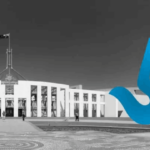Human Rights Abuses on Nauru

Nauru: It’s the world’s smallest island nation, but it’s been making headlines in Australia of late.
The island is the site of an Australian-run detention centre, which houses approximately 1000 asylum seekers in tent-like facilities. Conditions at the centre have been described as inhumane and overcrowded, with some likening it to World War II concentration camps.
Since the facility opened in 2001, it has been the site of hunger strikes, instances of self-harm and suicide attempts. And in recent months, staff members have been plagued by allegations of sexual assaults on women and children, culminating in the announcement of a Senate inquiry into the allegations in March.
But instead of moving forward, the government of Nauru appears to have taken a step backward, recently announcing plans to amend its laws to criminalise language intended to stir up political hatred.
Refugee activists have described the law as an intentional attack on freedom of speech which effectively makes it impossible for refugees to protest against the conditions in detention centres.
Given that the centre is run by the Australian government, some feel that we should be held accountable for abuses of human rights.
But does our government have any say in these matters?
The Relationship Between Australia and Nauru
Initially a German territory, Nauru came under Australian control in World War I.
Though it became an independent sovereign nation in 1968, Australia still has influence over its governance and activities, being responsible for its security.
Decisions of the Nauru Supreme Court can be appealed to the High Court of Australia, and the island uses the Australian dollar as its local currency.
The Nauru detention centre was established in 2001 as a solution to the highly publicised Tampa affair. This gave rise to the Howard government’s so-called Pacific Solution, which saw the government move asylum seekers to offshore detention centres on Nauru and Papua New Guinea. In exchange for hosting the asylum seekers, Nauru received aid money from the Australian government.
The Rudd government closed the detention centre in 2007, with the last asylum seekers being granted residency in Australia. However, the centre was re-opened by the Gillard government in 2012, together with a facility at Manus Island, for the offshore processing of asylum seekers.
Criticism and Controversy
Over the years, the detention centre has been marred by numerous allegations of human rights abuses, as well as the sexual abuse of detainees.
The conditions at the centre have been described as “appalling” by many, including a group of doctors who visited the centre earlier this year. Those who made the journey to Nauru reported inadequate access to basic medical and hygienic supplies such as sanitary pads for menstruating women. They also reported massive water shortages, resulting in detainees being limited to two to three minutes of shower time, and females being forced to bathe in front of male guards.
Former staff members have also spoken out about the inhumane conditions, describing temperatures upwards of 50 degrees inside the exposed tents.
Such conditions have understandably had a detrimental impact on the mental health of asylum seekers, with many reporting detainees cutting themselves, attempting to suffocate or hang themselves, and stitching their lips together.
Asylum seekers have also reportedly been denied access to communication, with visitors reporting that detainees are essentially ‘cut off’ from the outside world.
Aid workers have suggested that the Australian government knew about the sexual and physical abuse of women and children at the facility for over a year before a review was conducted.
One allegation concerned the sexual assault of a teenage boy by a cleaner employed at the facility.
Following these reports, Immigration Minister Scott Morrison expelled 10 staff members from the Save the Children charity, amidst claims that they had encouraged detainees to fabricate allegations of abuse and self-harm.
But a subsequent review, known as the Moss Review, found no evidence that the allegations had been manufactured; instead finding evidence that children and adults were asked to trade sexual favours with guards in exchange for extra shower time. There were also two separate allegations of sexual assault and threats of sexual assault documented by the Review, as well as allegations that cigarettes and marijuana were being traded in exchange for sexual favours.
Notably, the Review found that there were no explicit guidelines for employees relating to sexual harassment, and made a number of recommendations to ensure that detainees feel safe at all times.
Freedom of Speech Jeopardised by New Laws
In the wake of these appalling allegations, the Nauru government has reacted by presenting a new Bill to Parliament which would make it illegal to use language which is threatening, abusive or insulting in nature and has the intention to stir up racial, religious or political hatred. A proposed maximum penalty of 7 years’ imprisonment is expected to apply for the offence.
The proposed laws are justified on the ground of free speech, but it appears evident that they are a reaction to the recent findings of the Review, as well as the negative press surrounding the facility.
The island’s Justice Minister, David Adeang, stated in Parliament that:
‘We have to appreciate the constructive critique that comes from our people but as of late, this freedom has been tainted with somewhat vile and tasteless words that have no place in our country and amongst our traditional and Christian values.’
It’s feared that the new laws could impede detainees, workers and journalists who have witnessed human rights abuses at the facility from speaking out in the future; potentially facilitating further instances of abuse.
At a time when the facility has already faced criticism for restricting communication with the outside world, there are concerns that it could further isolate detainees.
Australian human rights advocates argue that we have a ‘moral obligation to intervene’ and protect the nation’s democratic values. But our government has denied any responsibility, pointing out that Nauru is a self-governing nation and should be able to make its own laws.
Is Australia Accountable?
The complex question of whether Australia should be held accountable for these alleged abuses, and whether or not it should intervene to prevent detrimental new laws from being passed, is difficult to answer.
International laws say that a nation is responsible for ‘internationally wrongful acts,’ which include those which are attributable to the state under international law and which constitute a breach of an international legal obligation of the State.
Australia is a party to the 1951 Refugee Convention and all other major human rights treaties.
On this reading, Australia should technically bear some responsibility for the injustices committed against detainees at the Nauru facility.
But as stated, our government denies any responsibility, suggesting that as it is a sovereign nation, Australia cannot exercise any power over the decisions of its government. International law experts, however, contend that sovereignty should not absolve a state from its responsibilities under international human rights law.
In other words:
‘Sovereignty does not grant a licence for Australia, or any other State, to override international law and violate the human rights of certain persons simply because they are within the territory of another State.’
They suggest that conduct of the Australian Government and its ministers in processing asylum seekers offshore, as well as the actions of private contractors to the government, such as those who provide security services to the detention centre, may render Australia responsible under international law for human rights abuse on the island.
The argument is that a party to a treaty can in certain circumstances be responsible for human rights abuses despite the acts occurring outside its borders, and that Australia’s funding, presence and involvement in the Naura detention centre renders it partly responsible for abuses taking place there.






